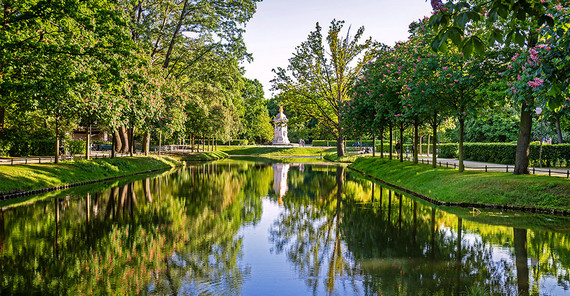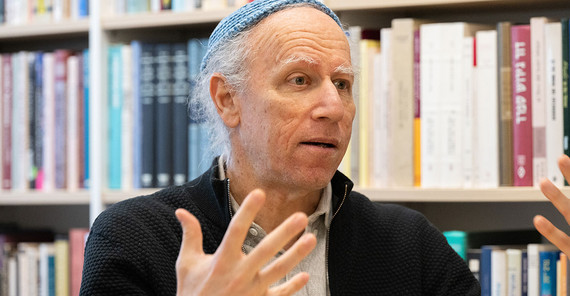Prof. Dr. Jonathan Schorsch is not just a university professor, but also the founding director of the Jewish Activism Summer School in Berlin. He wants to transfer ideas form the often abstract academic sphere into broader society and give back to the world and the environment: Schorsch came up with the idea for the project at the beginning of the "big break," the COVID-19 pandemic in 2020. Many people from different cultural and religious backgrounds came together online to celebrate a day of asking fundamental questions and living them in community. "We need to think about what we are doing and why. What do we live for?" says Schorsch. The religious scholar is concerned with nothing less than creating a "mass movement" for environmental protection.
Hyper-local and subversive
Whether people believe in God or not and which religion they belong to is less important to Schorsch. The "Green Sabbath" is not just for Jews. It aims to provide people from different backgrounds with a set of possible approaches on how to deal more consciously with themselves and the environment. "Judaism is a very good starting point for a green 'Earth Day'," says theologian Schorsch. "Traditionally, from a Jewish perspective, the Sabbath is a day that is connected to natural cycles from sunset to sunset. It's a day that is automatically hyper-local because you don't use transportation. In rabbinical Judaism, there is even a limit to how many steps you are allowed to take: 2.000 cubits."
Jonathan Schorsch will not switch on his laptop this Saturday morning – unlike the other days of the week. His smartphone is also turned off. Not far from his Berlin apartment, he walks through the park at Gleisdreieck and prays in the synagogue. On Friday evening, shortly before sunset, he lights Sabbath candles to give himself and other Jews spiritual light. He takes it easy on the most important day of the week in Judaism, stays close to his home and does nothing strenuous on this day. Schorsch is celebrating a "Green Sabbath" today.
"This ancient Jewish practice can be seen as a subversion of everyday life. It's a way of expressing that there are more important things than economic growth, productivity, and pure functionality," explains Schorsch. So is there also an aspect of it that is critical of capitalism? Absolutely, according to Schorsch. The Sabbath, he adds, could make it clear to people that they were more than just an economic unit, an employee, or an entrepreneur and that they did not belong to their employer. Schorsch quotes the British filmmaker and naturalist David Attenborough: "Anyone who thinks you can have infinite growth in a finite environment is either a madman or an economist." The practice of the "Green Sabbath" unites two worlds, which have always played a role throughout Jonathan Schorsch’s life: the world of Judaism, in which the son of a rabbi grew up, and that of ecological activism, in which he immersed himself as a young man living in the United States.
A foretaste of the world to come
"The Sabbath is supposed to be a foretaste of the world to come, as it literally says in the Babylonian Talmud," says Schorsch. “Many people think of prohibitions and regulations when they hear the word religion. But from our perspective in the 21st century, I see the Sabbath more as an opportunity to avoid screens. The goal is to delight in existence, to enjoy breathing, enjoying your family and community. It forces or rather allows you to tell stories to each other, read books with each other, maybe sing," Jonathan Schorsch clarifies.
Schorsch wants to make a difference at the local level and is looking for ways to translate the project from a website into real, local life. The first Green Sabbath weekend took place in Berlin in October 2023. He would also like to bring the Green Sabbath to students at the University of Potsdam with a major event, such as a summer school. In addition, he is currently writing a book on the topic with a few colleagues. It is also intended to trigger a change in values and make the world a little greener and more spiritual.
"Shabbat Shalom" – this is how Jews wish each other a peaceful Sabbath. It is the seventh day of the week in Judaism. On this day, the faithful rest and do not work – from Friday evening until nightfall on Saturday. Before it starts, they decorate their homes and prepare three meals.
More information: https://www.greensabbathproject.net/
Listen to the Podcast Episode “Green Sabbath” with Prof Dr Jonathan Schorsch now.
This text was published (in german language) in the university magazine Portal - Eins 2024 „Welt retten“ (PDF).


